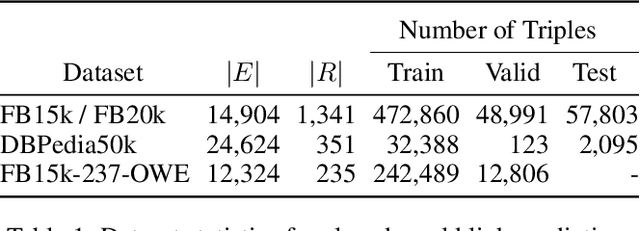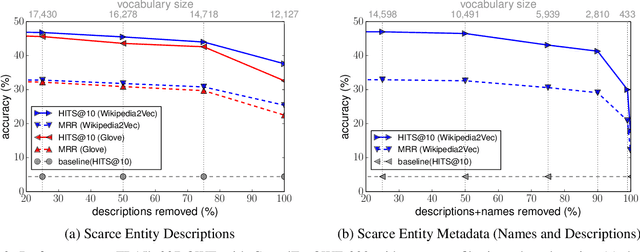An Open-World Extension to Knowledge Graph Completion Models
Paper and Code
Jun 19, 2019



We present a novel extension to embedding-based knowledge graph completion models which enables them to perform open-world link prediction, i.e. to predict facts for entities unseen in training based on their textual description. Our model combines a regular link prediction model learned from a knowledge graph with word embeddings learned from a textual corpus. After training both independently, we learn a transformation to map the embeddings of an entity's name and description to the graph-based embedding space. In experiments on several datasets including FB20k, DBPedia50k and our new dataset FB15k-237-OWE, we demonstrate competitive results. Particularly, our approach exploits the full knowledge graph structure even when textual descriptions are scarce, does not require a joint training on graph and text, and can be applied to any embedding-based link prediction model, such as TransE, ComplEx and DistMult.
 Add to Chrome
Add to Chrome Add to Firefox
Add to Firefox Add to Edge
Add to Edge